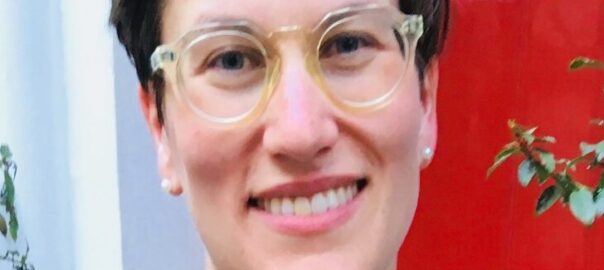At this challenging time, as the Abrahamic faith communities approach a most sacred season in their annual calendars – Passover, Easter and Ramadan – lock down is depriving all of us of the opportunity to congregate in person. In that the virus at the centre of this global pandemic is not differentiating between religious affiliation, gender, race, or nationality, we see this as an opportunity to stand in solidarity with each other.
On this important occasion, we’ve asked two of our Mitzvah Day supporters to share with us the struggles their communities will face in celebrating Holy Week and observing Ramadan in the weeks ahead. We hope you find comfort in knowing that all of humanity are fighting the same cause and that religious leaders firmly believe that our prayers and support of each other will lead us forward with hope and inspiration.
Lent, Holy Week and Easter in the Time of Covid-19
By Revd Dr Ayla Lepine
There is a hymn often sung in churches called ‘There’s a wideness in God’s mercy’. God’s love, as one Christian prayer puts it, is ‘more than we can ask or imagine.’ Accessing that love and mercy is more important than ever, and feels quite difficult now.
The timing of the Covid-19 pandemic is a crisis for all, and for those whose faith traditions bring them into profound seasons of rituals and religious experiences in which being together has been essential, the timing creates unique anguish.
Lent is a 40-day season of fasting, repentance, study, and prayer, mirroring Jesus’ own 40 days in the wilderness expressing the truth of God’s love even though the challenges were profound. People tend to give things up or take things on. It begins with Ash Wednesday, during which people come to church to hear Psalm 51 (often sung to the beautiful setting by Allegri), receive the Eucharist, and also receive ashes on their foreheads in a cross shape.
The ash is made by burning palm crosses, given to the congregation and blessed on Palm Sunday, at the beginning of Holy Week. It reminds us that ‘you are dust and to dust you shall return; turn away from sin, and be faithful to Christ.’ We are only human. God is with us always.
Who could have imagined that within weeks we would have to be physically distant, close our churches, and worship online, to save lives, and love our neighbour as ourselves! The closures and the impossibility of gathering together in these holy places has caused heart breaking anguish.
We’ve suddenly become tech experts, in desperation, while traumatised, and at high speed. We cannot share the Eucharist either. Bread and wine cannot be offered together in our foundational way of gathering as a community.
On Palm Sunday, 5 April, congregations would normally be given blessed palm crosses, to symbolise the branches people laid down for Jesus when he arrived in Jerusalem on a donkey, knowing the time for his death and, eventually, his resurrection was drawing near.
This year we will make crosses on our palms and send photographs for an online Facebook Live service. When people hold up their palms, I will bless them remotely. Next year, I wonder what will be burnt instead, as a sign of this wilderness time. There is more creative thinking to be done!
The week that follows, Holy Week, is the most precious and sacred in the Church year. On Thursday, to remember the Last Supper, we will wash each other’s feet as a sign of Jesus’ humility, strip the altars of their sacred cloths, and pray through the night. On Good Friday, we meditate on the Crucifixion, drawing near to Jesus’ death. On Holy Saturday, there is a vigil late at night, in which a candle is lit from a fire and a prayer called the Exultet (‘Rejoice’ in Latin) is sung. In this ritual, light returns to a dark world, and life conquers death. Easter Sunday is always a time for joy.
Somehow, there will be joy this year too. We will have services online, we will meet for Zoom social and prayerful time, and we will help people in our community however we can. We are working with our neighbours of all faiths in Camden to support food banks, reach out to those who need practical and social support, and make new connections.
There is much good that will come from this situation, and lasting relationships too. But we will not gather to worship. No choirs, no handshakes, no hugs, no bread, no wine. There are no words for these immense losses.
But there is a ‘wideness in God’s mercy’. We cling to that now.
About the Author: Rev Dr Ayla Lepine is a curate priest ordained in 2019 working for Hampstead Parish Church. This reflection is in an Anglican context and in a personal capacity. She can be reached at: @heartchitecture / ayla@hampsteadparishchurch.org.uk
(Click here for Part 3)
